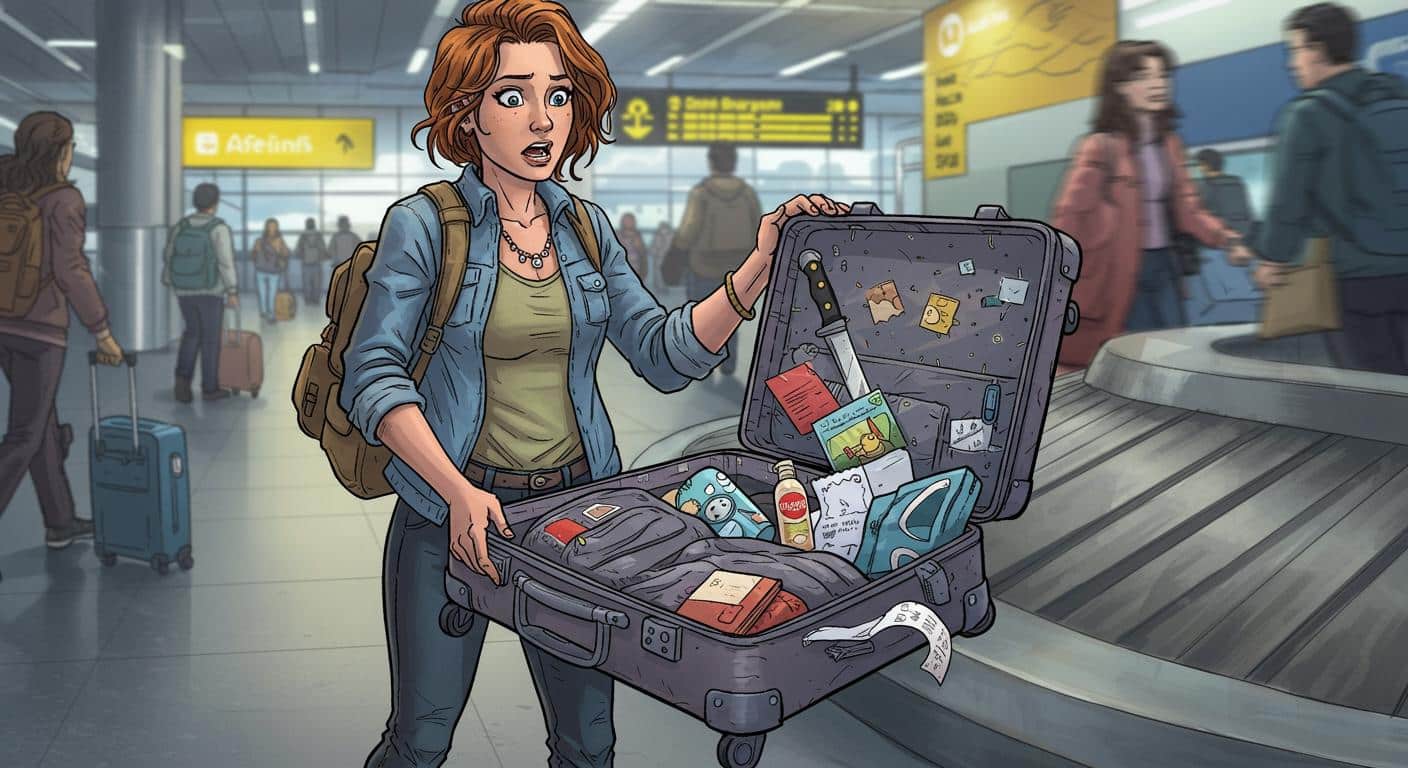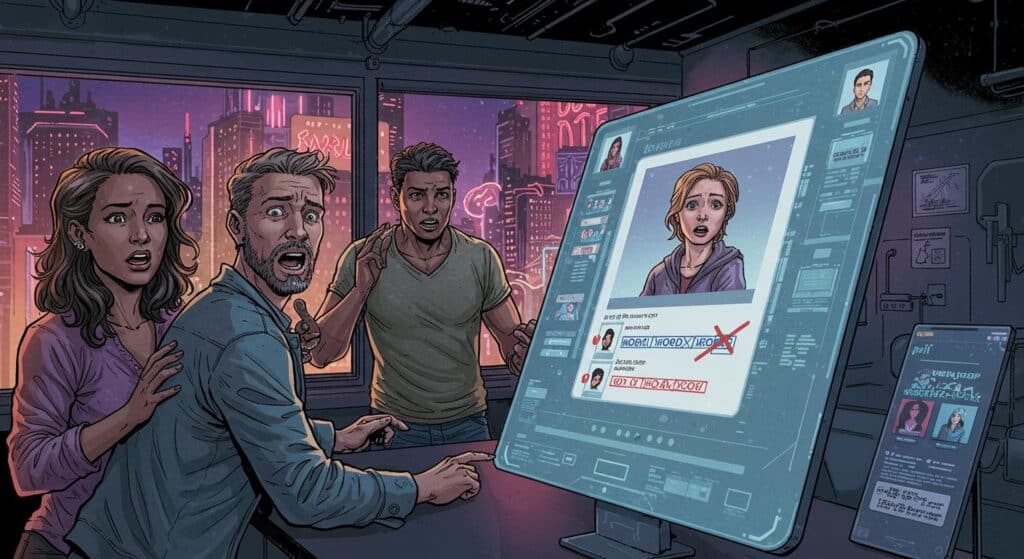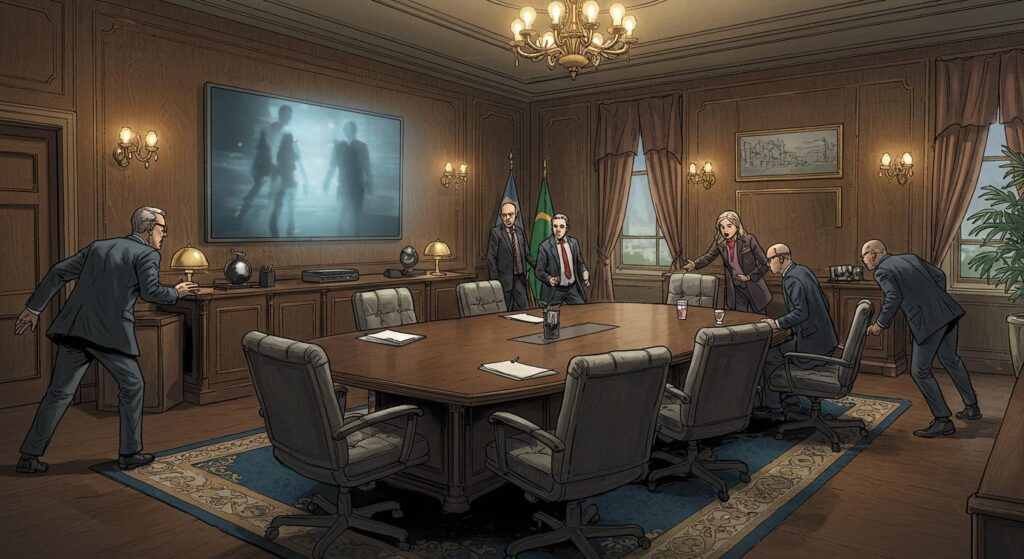There’s a certain joy in a travel mystery—usually the fleeting, harmless kind, like guessing what snack you’ll get on a short flight. Far less charming is the mystery that unfolded for Newfoundland’s Linda Royle, whose missing suitcase took a detour worthy of its own episode of “Unsolved Baggage Mysteries.” According to details outlined by CBC News, when Air Canada eventually returned Royle’s lost luggage, she found not her missing shoes and favorite Crocs, but a collection of unfamiliar items, most notably a knife and a boarding pass from 2020. If you thought checked baggage roulette couldn’t get more interesting, think again.
When “Returned Luggage” Means “Completely New Ensemble”
Described in the CBC story, Royle’s ordeal began after a stopover at Toronto Pearson International Airport this past March. She told the outlet that her carry-on, which she was asked to check at the gate, never arrived in St. John’s. For days, its whereabouts remained anybody’s guess—an Apple tracker in her larger suitcase suggested that bag was still at Pearson, though it, too, initially failed to materialize.
Eventually, thanks to an unexpected assist from a pharmacy in St. John’s—Royle reported that someone at Pearson’s lost and found passed her suitcase along because it contained her medication—her carry-on was finally returned. But as she recounted to CBC, the relief evaporated once she flipped open her suitcase: instead of her own possessions, she discovered two old toiletry bags filled with personal hygiene items, a ticket scanning machine, a knife, and a man’s boarding pass from April 2020.
CBC News notes that among the vanished items were shoes, books, clothing, and medications—Royle put the value at close to $950. More than just the lost property, though, what stuck with her was the surreal swap. “You feel violated,” she told the outlet, describing the disconcerting sense that someone had hand-picked which of her belongings were worth keeping, then replenished the suitcase with an assortment of odds and ends. One of the toiletry kits reportedly housed the knife, along with everyday grooming tools ranging from nail clippers to shaving items and toothpaste.
There’s a poetic oddity in receiving your suitcase back, only to find it’s been restocked like the leftovers bin at a yard sale. Is it possible there’s an underground bartering system based entirely on checked baggage? While that seems unlikely, you do have to marvel at the variety of what can accumulate in airport limbo.
The Claims Obstacle Course
In a decision outlined in correspondence reviewed by CBC News, Air Canada initially refused to compensate Royle for her losses, citing her lack of receipts for the missing items as the sticking point. A baggage claims representative wrote that, because she couldn’t verify ownership, her claim didn’t meet Air Canada’s compensation requirements. At the time, the airline’s policy required proof—typically receipts—for items valued above $350.
Royle, as the CBC interview explains, was especially frustrated by the procedural stonewall: “You entrust your bags with them and then because you didn’t carry receipts for sandals you bought in 2023 and 2024, they [said], ‘tough,’ because you can’t prove that you own them.” Among the lost items, a particular pair of pink Crocs had significant sentimental value as a gift from her niece during a family member’s illness—a detail that highlights how compensation frameworks rarely account for meaning outside of dollar signs.
Alongside the denial, Royle was given just a 15 percent discount code toward her next Air Canada trip. In the irony department, that’s rather like being handed a coupon for a meal at a restaurant that’s just lost your lunch order—provided, of course, you’re willing to roll the dice again.
Security, Scanning, and the Baggage Bazaar
As previously reported by CBC News, Royle suspects that an Air Canada employee in Toronto failed to properly scan her carry-on, leading to it sitting unmonitored for days—a theory that feels plausible, given the hodgepodge of objects that materialized in the bag’s second act. The inclusion of a ticket scanner (the kind airports use on boarding passes) adds another layer of airline-lounge intrigue. While Air Canada stated to CBC that its security team is reviewing Royle’s case, it’s difficult to shake the image of a suitcase meandering unsupervised behind the scenes, open season for curious or opportunistic passersby.
Notably, the airline’s position did shift after CBC News inquired about the claim: two days later, Royle was told her case would be revisited, and a spokesperson acknowledged that, upon review, the individual items being claimed were under the compensation threshold requiring receipts. The outlet also notes that Air Canada confirmed it was reaching out to finalize Royle’s claim and that their security investigation was underway.
Looking at the whole saga—the wandering suitcase, the makeshift lost-and-found handoff, and the reappearance of a four-year-old boarding pass—you might wonder: are these just the quirks of a stressed airline system, or is lost luggage becoming an experimental art project in unintended consequences? Has anyone else ever had their baggage returned with a bonus inventory from someone else’s journey?
With limited airline options for Newfoundland travelers, as Royle pointed out, flying Air Canada often isn’t exactly optional. One almost hopes future baggage returns will trend back toward the conventional. But, just in case, it may be wise to keep an eye out for souvenirs that weren’t yours to begin with. After all, as Royle’s experience documents, the baggage carousel has its own sense of humor—and, occasionally, a distinctly mysterious ethos.







